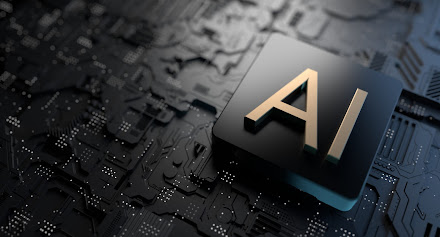When a DeepMind computer program defeated the world champion in the ancient Chinese strategy game of Go, which has more possible moves than atoms in the universe, the Chinese government experienced what has been dubbed the Sputnik moment. Will be remembered as the pivotal moment when AI became mature and everyone jumped on the bandwagon, declares Kai-Fu Lee, a prominent Chinese AI researcher, and venture capitalist. After that Go game, China's President Xi Jinping established objectives for the country to catch up to the United States in artificial intelligence by 2025 and take the lead in the world by 2030.
Shawn Cumbee and his wife Hope, Beaverton, Michigan, independent truck drivers, are certain that automation will not be able to replace them. Shawn contends that individuals continue to commit errors and invent new ones. I have no concerns. However, Hope takes a moment to consider her options when she discovers that Embark trucks are already delivering cargo on Interstate 10:Thanks to artificial intelligence, computers can now learn to drive, do accounting, scan legal documents, pack grocery bins, and do a wide range of other things for both white-collar and blue-collar workers. In addition, it explains that artificial intelligence is a type of automation and that automation has eliminated more jobs than offshore plants over the past four decades. Concerns are raised because AI may now significantly accelerate that trend.
In the next fifteen years, fifty percent of jobs will be in some way threatened by AI, according to Kai-Fu Lee, the author of AI Superpowers. He worries that the rise of AI will exacerbate another alarming trend: the widening gap between wages. Kai-Fu Lee warns that AI will worsen the situation and, in her opinion, divide society because the wealthy will likely have too much while the poor will likely have few options for escape. The film is concerned about how personal lives are being invaded by artificial intelligence and how privacy is being violated in China and the United States. A few pilot projects are using AI to give people a social credit score, and AI is used to recognize faces in many Chinese cameras. This score is used by the government to reward some people for what it considers to be good citizenship and punish others for other things. Dissident scholar Xiao Qiang asserts that China is establishing a nationwide surveillance state.
The demonstration project is located in the province of Xinjiang, where AI is being used against Muslims in a campaign that has alarmed human rights groups. China claims that more than a million ethnic Uighur people have been sent to so-called re-education camps and that technology is being used to identify potential terrorists. China, on the other hand, is exporting its technology and authoritarian methods worldwide while simultaneously constructing a bamboo curtain that includes shared infrastructure, the internet, and 5G digital systems. One of the things I worry about the most is that the world is going to split in two and that there will be a Chinese tech sector and an American tech sector, says Nicholas Thompson, the Editor-in-Chief of Wired magazine.
Also, nations will effectively be able to choose their preferred option. You will have to decide whether to join the United States or the Soviet Union, just like you did during the Cold War. Nobody finds that kind of world appealing. According to The Age of AI, American AI algorithms also collect data to sell our personal information to advertisers. Despite being less well-known, this kind of corporate surveillance is common. We pretended to use social media when we first entered this unfamiliar world. Shoshana Zuboff, a professor at Harvard, claims, We behaved as if we were researching Google. We didn't know social media was using us. We had no idea that Google was trying to find us.
Zuboff, the author of The Age of Surveillance Capitalism, warns that third parties can target and manipulate voters in elections by using data from companies like Google, Facebook, and others. Additionally, this puts an end to our online digital exhaustion. She asserts that Cambridge Analytica focused on political outcomes rather than advertisements precisely in this manner. Despite their promise for society and the future, a pioneer in AI Yoshua Bengio is concerned that his deep learning algorithms may also be risky: AIs are the instruments. The people in charge will benefit from using those instruments. He asserts that if those interests clash with democratic principles, democracy will suffer. A gripping look at some of the ways this brand-new technology has already altered and will continue to alter our world is provided in The Age of AI.





No comments:
Post a Comment